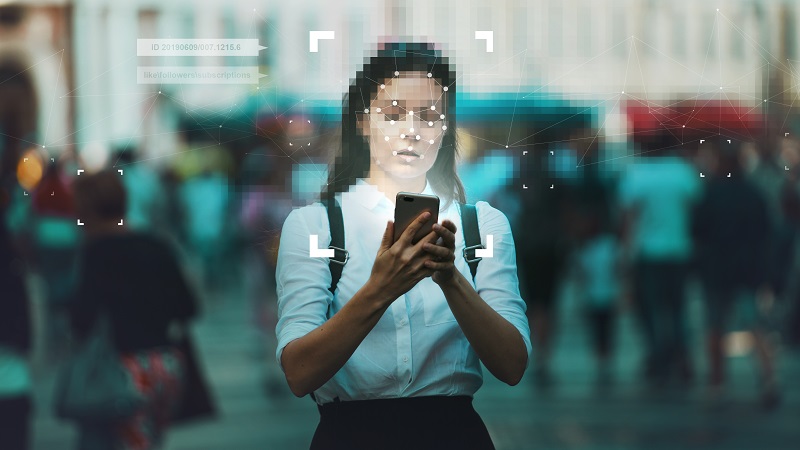Consumers have a right to data privacy. The use of biometric technology is increasingly on the rise, and laws are being enacted to ensure consumers have a right to privacy of their biometric data. When their biometric privacy is breached, consumers can achieve justice through a class action lawsuit.
Today, digital transactions are being conducted at a greater rate than ever before. Various industries, from healthcare to banking and hospitality to payment processing, are using biometric data as authentication methods to secure digital transactions and simplify the user experience.

What is biometric data?
The biometric data that industries employ is diverse, but its purpose is to verify the identity of the digital user. Biometric methods that are commonly employed include fingerprint authentication, facial recognition, iris recognition, and DNA testing. Voiceprints and palmprints are also utilized.
Artificial intelligence (AI) is behind the authentication methods, analyzing the captured data through biometrics tools and ensuring it is valid. AI can accurately differentiate a 2D facial image from a 3D live one by analyzing the facial recognition data presented to it.
The use of biometric data is growing exponentially in North America, as well as Asia. Europe, South America, and the Middle East are not far behind in employing this rapidly emerging technology. In 2021, the global biometrics market was valued at $39.62 billion.
What industries use biometric data?
As mentioned, healthcare and banking industries are quickly embracing this new technology. So too are military and defense fields, government agencies, and financial services. Consumer electronics and automotive industries are also taking advantage of the authentication abilities of biometric data.
Several drivers are behind the increasing use of biometrics technology. The popularity of smartphone cameras makes it easy for consumers to confirm their identity through facial recognition, or selfies. Voice recognition is an automated way to confirm caller identity and retrieve customer account data.
Healthcare agreements are being increasingly signed with digital signatures. Electronic patient records are being protected from cyberattacks with the use of integrated facial identification systems. Upon confirming identity, hospital patients check in and out faster by following facial recognition procedures.
In banking, biometrics technology is being adopted to authenticate the identity of online customers. Biometric data provides a more secure method of authentication than two-factor authentication systems. In the travel industry, biometrics features can be incorporated into passports and accelerate access to airport services.
Is consumer biometric data at risk?
Given the numerous ways biometrics technology is being utilized, abuses can occur. In response, biometric data privacy laws have been enacted. Illinois was the first state to enact its Illinois Biometric Information Privacy Act (BIPA) in 2008 to address corporations’ collections of consumer biometric data.
Included in the BIPA are privacy protections, such as obtaining informed consent prior to collecting biometric data, limiting disclosures of biometric data and, most importantly, the right of action by individuals who have suffered injuries due to the mishandling of their biometric data.
Individuals who pursue legal action against corporations that have violated biometric data privacy laws can be awarded damages. These plaintiffs do not necessarily need to have suffered a tangible or monetary injury. Plaintiffs can be entitled to statutory damages when violations of BIPA occur.
In recent years, this legal precedent has led to a large number of BIPA lawsuits. In 2020, for instance, Facebook was taken to trial via a class action lawsuit for allegedly collecting users’ biometric data without their consent. Facebook agreed to a $650 million settlement.
What are class action privacy lawsuits?
Along with the rapid spread of biometrics technology are risks and responsibilities. When companies violate BIPA, statutory damages up to $1,000 per negligent violation and up to $5,000 for each reckless or intentional violation can be awarded to aggrieved parties.
Illinois is not the only state to enact biometric data privacy laws. Nine other states have modeled their biometric data privacy laws after Illinois’ stringent legislation. These states include New York, Maryland, and Massachusetts. Texas and Washington also have biometrics laws on their books.
Individuals whose biometric data has been breached can consult a class action law firm to recover statutory damages. Some states award higher damages when a class action lawsuit is filed. Massachusetts, for example, sets damages at no less than $5,000 per violation.
As biometrics technology continues to evolve, the demand for greater consumer privacy regulations will grow. The risk for aggrievances will also rise in proportion to the widespread use of biometric data. Aggrieved individuals obtain justice for biometric data abuses by filing or joining a class action lawsuit.
Identity theft is a potential consequence of biometric data breaches. When a corporation has been negligent in handling consumer biometric data, it should be held accountable for its wrongdoing. A privacy class action lawsuit can bring compensation to victims and motivate corporate policy changes.
Why would a class action work for you?
When you believe your biometric data has been breached, consult a class action law firm, like Anderson + Wanca. Depending on how many people have been impacted by the company’s mishandling of consumer biometric data, you have the option to file a biometric class action lawsuit.
When several people have been injured by a corporation’s negligent handling of biometric data, our class action law firm can help you receive the compensation you deserve. Our firm of skilled class action attorneys are experienced in all facets of BIPA and have successfully secured damages for our clients.
BIPA violations include storing biometric data insecurely, not obtaining consent prior to collecting biometric data and not destroying biometric data per BIPA guidelines. If your rights to biometrics privacy have been violated, do not hesitate to contact our law firm for expert counsel about your legal options.
Violating BIPA laws is a serious offense. When your biometric data has been handled negligently, work with the reputable class action lawyers at Anderson + Wanca. Your class action privacy lawsuit will be in the hands of knowledgeable attorneys. Call our Rolling Meadows, Illinois, law firm today.

